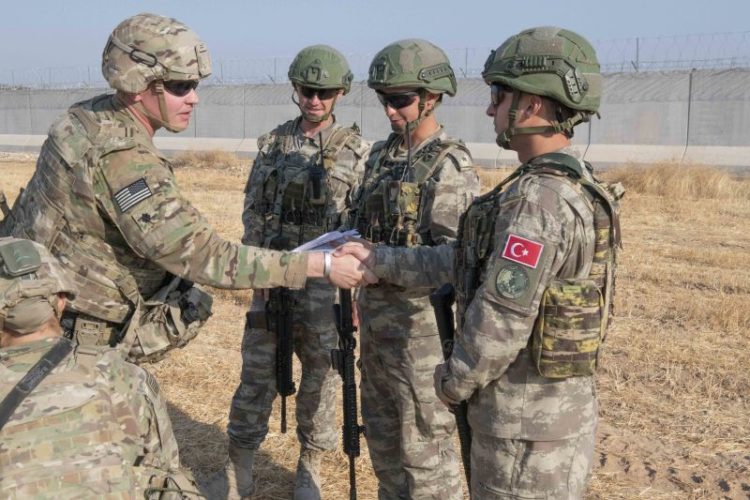An already tense situation has escalated into a deadly tit-for-tat violent struggle in northwest Syria. The Syrian government troops of President Assad have attacked Turkish troops killing six in an artillery barrage in Idlib. The Turkish military responded with strikes of their own, Turkish President Recep Tayyip Erdogan reported that they hit over 40 Syrian positions in the area, killing dozens of Syrian troops in the process.
The fighting between the two militaries is forcing Russia in an uncomfortable and very difficult situation as they’re already a staunch ally of the Assad regime and have supported him for years. But the Russians also agreed with the placement of Turkish forces in Idlib to prevent further violence in the area, which is exactly what Assad’s forces are doing.
The 2018 de-escalation agreement was supposed to prevent accidental confrontations. But this attack on the Turkish forces was considered by Ankara to be brazen and deliberate.
The fighting in Idlib province, where the last of the rebel-held territory is, has pushed the tensions to a boiling point. Idlib is home to nearly three million civilians of which about 700,000 have been displaced, just since last May. Almost 1,500 civilians were killed last year.
The Turkish government has condemned the attacks and vowed to respond if attacked again. “Our brave soldiers are conducting security and humanitarian missions inside Syria in line with our agreements with Russia,” Fahrettin Altun, Turkey’s communications director, posted on Twitter. “If Russia is unable to control the Assad regime from targeting us, we will not hesitate to take action against any threat, just as we did today in Idlib.”
The Russians, however, backed Assad and said that the reason Turkish soldiers were killed was the fault of the Turkish military, not the Syrians. Through their official news agency Tass, the Russian Ministry of Defense said that the shelling that killed Turkish troops was in fact targeted at “terrorists” and that the collateral damage happened because Turkey failed to notify Russia about its movements.
The Russians also denied the claims that the Turks conducted airstrikes against any Syrian regime forces. “Turkish Air Force aircraft did not violate Syria’s borders, no airstrikes on the positions of Syrian troops have been recorded,” the Russian Defense Ministry released in a statement. However, the British-based Syrian Observatory for Human Rights, which monitors the situation, estimated that at least 13 Syrian soldiers were killed due to Turkish shelling on positions in Idlib, Latakia and Hama provinces. They made no mention of airstrikes.
The United States’ response was, not surprisingly, critical of the Assad regime, the Russians, and of course Iran and Hizbollah. The State Department condemned the attacks on Idlib, with a statement against the “continued, unjustifiable and ruthless assault by the Assad regime, Russia, Iran, and Hizballah on the people of Idlib.” The statement also called for all sides to agree on an immediate ceasefire and access for humanitarian groups to aid people in Idlib.
Mark Cutts, the Deputy Regional Humanitarian Coordinator for the Syria Crisis said in a statement that the situation was becoming alarming for the civilians in Idlib. “I am alarmed at the deteriorating humanitarian situation in Idlib, northwest Syria, where over three million civilians remain trapped in a war zone — the vast majority of them women and children.”
“Humanitarian organizations are struggling to cope with the increased needs [of the population]. At least 13 health facilities in Idlib have recently been forced to suspend their operations due to the security situation, [thus] exacerbating the suffering of the local population and heightening levels of vulnerability.”
Meanwhile, a Russian anti-aircraft battery shot down a drone that approached its bases from the Mediterranean, which further added to the tension. The Russians reported that one of the military’s Panstir-S surface-to-air missile and gun systems successfully shot down a small unidentified drone that approached the base.
Already have an account? Sign In
Two ways to continue to read this article.
Subscribe
$1.99
every 4 weeks
- Unlimited access to all articles
- Support independent journalism
- Ad-free reading experience
Subscribe Now
Recurring Monthly. Cancel Anytime.










COMMENTS